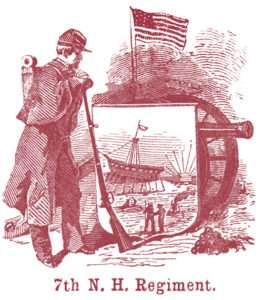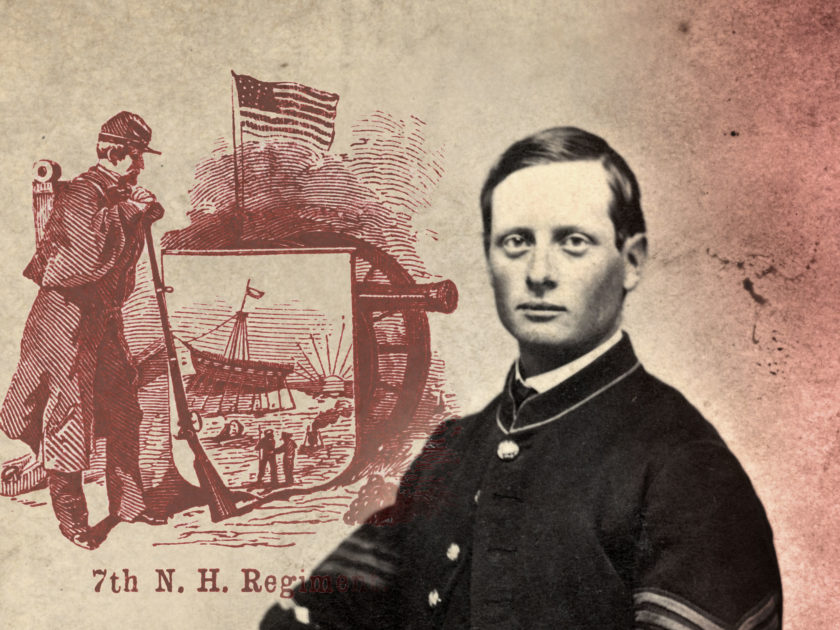
Observers of a Confederate charge against Union troops during the early morning of Oct. 7, 1864, were in for a surprise. The rebels had just driven them from a position north of the James River near Richmond, Va., and followed in hot pursuit.
As word of the Confederate success spread, fresh Union infantry lined up to intercept the hard-riding graycoats. Among the boys in blue who formed for battle was Sgt. Henry F.W. Little of the 7th New Hampshire Infantry. A 22-year-old native of Manchester, N.H., he had his first taste of military life when he helped organize the Lincoln Guards, a local militia company formed after the nomination of “Old Abe” for president. In September 1861, Little left his job as a typesetter at a local newspaper, the Daily American, and joined the 7th as corporal and soon earned his sergeant’s stripes.
Three years later near the James, the advantage appeared to be with the rebel attackers. “Our line was without breastworks or protection of any kind and the Confederates pushed up to within a few rods of us,” Little recalled. “Our force was not large and our lines extended so far that we were without support.”
The Granite Staters had two advantages—remaining calm and possessing superior firepower. Corporal Little noted, “Much depended on the individual bravery and the courage of the officers. As the rebels came rushing on I advised our men to keep cool and not fall back an inch.”
 Little added, “The charge was desperately and handsomely made and energetically repulsed. Our brigade, which seemed to have been the objective point of the Confederate attack and had borne the brunt of the assault, was armed with Spencer repeating carbines, seven-shooters, and delivered so destructive a fire that it was impossible for the enemy to withstand its effect.”
Little added, “The charge was desperately and handsomely made and energetically repulsed. Our brigade, which seemed to have been the objective point of the Confederate attack and had borne the brunt of the assault, was armed with Spencer repeating carbines, seven-shooters, and delivered so destructive a fire that it was impossible for the enemy to withstand its effect.”
The fight lasted less than a half hour with Little and his comrades in control of the field.
Before the year ended, Little left the 7th to accept a first lieutenant’s commission in the 4th and later 29th U.S. Colored infantries. He ended the war in April 1865 with brevets for captain and major. In 1870, Little received the Medal of Honor for gallantry on the skirmish line that held back rebel cavalry north of the James.
Little returned to Manchester and went on to become a milk inspector and serve in the state legislature. Active in veterans’ affairs, Little wrote the regiment’s 1896 history. In his biographical sketch on page 522, he noted, “It was always Lieutenant Little’s fortune to be with his company or regiment, whether on a skirmish line or in an assault; he was always on good terms with those around him, and among his best and life-long friends are those made during his army life.”
Little lived until 1907. His wife and four children survived him.
LEARN MORE about Military Images, America’s only magazine dedicated to showcasing, interpreting and preserving Civil War portrait photography.
VISIT OUR STORE to subscribe, renew a subscription, and more.

